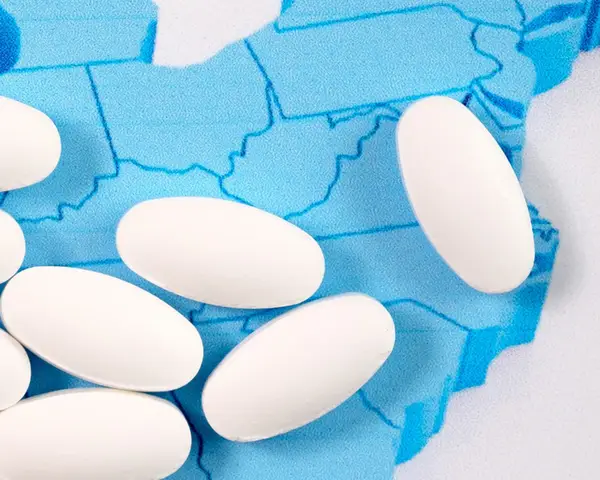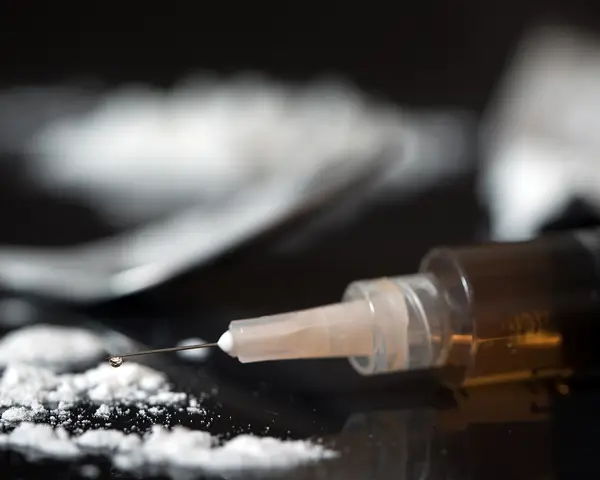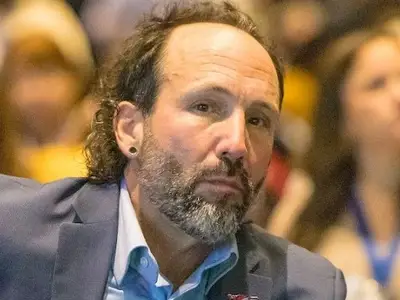
In the face of a rapidly evolving opioid crisis, the research and the response must be resilient. This past year involved efforts to further expand ways to combat the crisis on the state and community levels, to track secondary impacts of the crisis—including the rise of infectious diseases among people who inject drugs and neonatal opioid withdrawal syndrome—and to increase access to quality treatment.
As harm reduction efforts continued to pave new paths to understand the true impact of supervised consumption services (SCS) and naloxone distribution programs, prevention and prediction efforts evolved to stay in front of the patterns of addiction and overdose deaths. Meanwhile, the industry continued to fight against the undercurrent of systematic and structural stigma.
Look back at 2019's landmark studies and formative work in the following key areas to see how RTI International continues to lead the industry in providing a comprehensive opioid response.

State- and Community-Based Responses
Last year saw an increased emphasis to combat the crisis on the ground in states and local communities. RTI played a pivotal role in supporting these efforts by:
- Helping to reduce the number of fatalities in more than 60 towns and counties by serving as the Data Coordinating Center for the National Institutes of Health HEALing Communities Study,
- Supporting communities as they implement or scale up prevention, treatment and recovery efforts using State and Tribal Opioid Response grants through the Opioid Response Network,
- Evaluating the rising importance of family-centered treatment programs and identifying the barriers that states face in implementing these programs,
- Tracking and evaluating state policies related to MAT for OUD to understand which historical and current measures directly affect providers’ and patients’ use of MAT,
- Assessing which recovery support services are covered by state Medicaid programs, and
- Determining that money alone cannot solve the opioid epidemic—state and local departments of health need additional support to implement their funding and programs effectively.

Increasing Access to Quality Treatment
Ensuring providers offer quality opioid use disorder (OUD) treatment and increasing access to that treatment are crucial cornerstones for combatting the crisis. In 2019, RTI supported these efforts by:
- Advocating to create quality measures for addiction treatment by collecting and using patient outcomes data,
- Helping providers make more informed choices when selecting treatment programs for patients by studying the effectiveness of medication-assisted treatment (MAT) compared to counseling-only treatment, and
- Monitoring where barriers to accessing care have been removed, including conducting a study about Medicare Part D plans that have removed the requirement for prior authorization to fill a prescription for OUD medication.

Stigma
Stigma, in all its forms, is destabilizing—not only to the individuals eclipsed by its dehumanizing shadow, but also to the foundation upon which we combat the crisis. Whether it's systematic or structural, stigma leaves a legacy of isolation that cannot continue if we hope to win the opioid war. In 2019, RTI sought to understand, dismantle and dispel opioid-related stigma by:
- Articulating the impact of stigma within the opioid crisis and the role opioid response leaders play in reducing stigma,
- Assessing the effectiveness of The Crisis Next Door campaign ads, which aim to reduce stigma around opioid addiction, and
- Evaluating findings from a U.S. survey about stigma related to opioid treatment to determine the implications of opinions toward OUD treatment options, people addicted to prescription opioids and the health care providers who care for them.

Harm Reduction
Harm reduction efforts to minimize the negative effects associated with drug use rose to the forefront of the crisis in 2019. RTI’s prominent role in harm reduction included:
- Studying the effectiveness of SCS and conducting surveys about the support for opening a site in the midst of policy discussions on whether to legalize SCS in the U.S.,
- Reducing the volatility of addiction by advocating to replace powerful illegal opioids, such as fentanyl, with milder prescription ones, such as buprenorphine, to control opioid cravings,
- Demonstrating how to successfully reach high-risk, previously unengaged populations with Overdose Education and Naloxone Distribution programs, and
- Speaking nationally about the importance of harm reduction strategies—including fentanyl test strips, naloxone distribution and syringe exchange programs.

Prevention and Prediction
The importance of implementing effective prevention tactics remains paramount to combating the crisis, but 2019 saw a new element in prevention efforts: using data to predict where emerging trends and overdose deaths could happen next, allowing states and communities to scale up efforts where needed. RTI contributed to both prevention and prediction efforts by:
- Discovering that law enforcement drug seizures and crime lab data could be used as a predictor and potential early indicator of emerging opioid overdose deaths,
- Making a case for prevention’s seat at the table in a keynote at the National Prevention Network Conference and to lawmakers on Capitol Hill, and
- Developing an opioid action plan that uses Patient-Centered Clinical Decision Support tools to help improve pain management and care delivery to reduce OUD.
- Supporting the implementation and evaluation of efforts to prevent opioid misuse and opioid use disorder among older adolescents and young adults.

Secondary Impacts of the Crisis
The impact of the opioid crisis continues to spread into other areas of public health concern. In 2019, RTI studied areas that experienced the strongest secondary impacts of opioid addiction, including:
- The increased risk for injection-related infectious diseases—such as HIV and the hepatitis C virus—among people who use illicit fentanyl,
- The impact to women and their families, including infants born with neonatal opioid withdrawal syndrome, and
- The increased risk of Emergency Room visits and hospitalizations for high-dosage opioid patients who are rapidly discontinued from their medication.
Learn More
Learn more about RTI's commitment to support the full spectrum of efforts needed to combat this epidemic—including treatment, prevention, intervention and more.
View our opioid experts below, and contact us to learn how we can support you.




